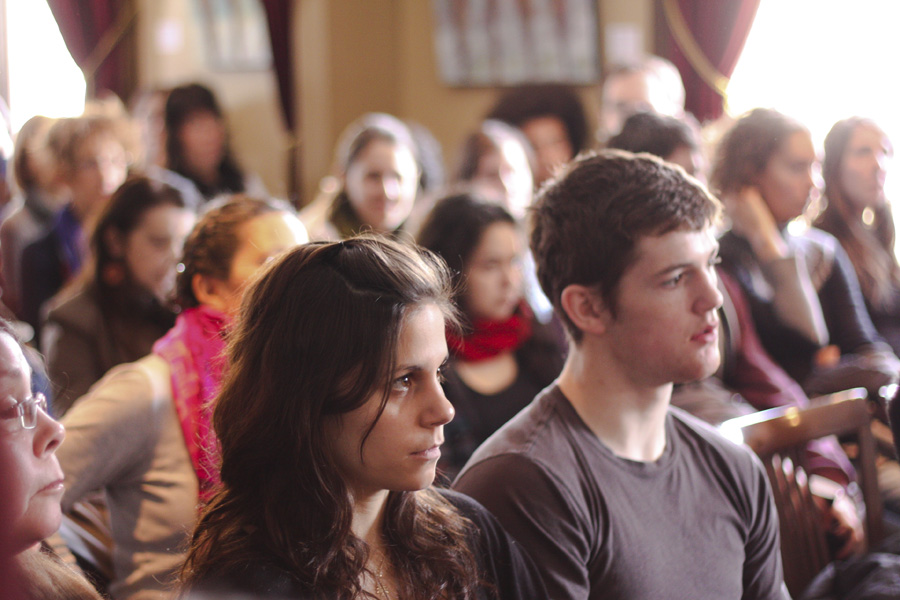McGill’s Thomson House Ballroom was filled to capacity on Friday afternoon during McGill’s first Idle No More teach-in. The event focused on educating attendees about the Idle No More movement, which draws attention to the socio-economic, political, and cultural relationships between Indigenous peoples and the Canadian government.
Friday’s teach-in represented an effort by three McGill entities—the Anthropology Graduate Students Association (AGSA), the First Peoples House, and the Centre for the Study of Society, Technology, and Development—to promote campus discussion on the movement, which began in November. The event was the first in a two-part series.
Chelsey Vowel, a Métis woman who currently teaches Inuit youth in Montreal, explained that clarity on issues such as tax exemption and subsidized education would result in less resentment towards Indigenous peoples.
Vowel said the Idle No More movement is about first breaking down the wall between Indigenous peoples and non-Indigenous peoples.
“We all want a better life for ourselves—Native or non-Native—and the only way we’re going to get there is if we cooperate,” she said.“We need a better understanding of the history and the obligations we have to one another, [and address] specific legislation coming out that’s threatening to erode Indigenous rights. … Ignorance breeds contempt,” she said.
McGill alumnus and lawyer Jameela Jeeroburkhan discussed certain federal bills that have upset Indigenous communities like Bills C-45 and C-38, which together implemented 114 amendments to federal laws.
“If a potential Aboriginal right or interest is affected by a project, [the government has] an obligation to consult the Aboriginal people affected,” she said. “Less environmental regulation [means] the duty to consult will not arise, and Aboriginal peoples will be less informed about development taking place on waterways that they use.”
The final speaker was Aaron Detlor, a lawyer and Haudenosaunee citizen from the Bay of Quinte, Ontario. Detlor claimed the Idle No More movement is not supposed to have a focus; instead, its purpose is to discuss multiple interconnected issues of Indigenous peoples and the Canadian state. According to Detlor, protests of Bill C-45 are due less to the content of the bills, and more due to the way they force Indigenous peoples to conform to non-Indigenous ways.
“[Bills like Bill C-45] force us into an adversarial system, so even if we were to decide ‘yes we’re going to court’… it denies our most fundamental relationship with the Creator and our most fundamental relationship with each other, and that’s the ability to come to one mind,” he said.
The teach-in lasted just under four hours, beginning and ending with a Mohawk prayer. Each speaker paused frequently to take questions from the audience.
Erin Linklater, U3 arts , said she came to the event in support of the Idle No More movement because it addresses issues, such as the environment, that are important to all Canadians.
“As an academic, it’s important to be informed, whether you support it or not,” Linklater said.
Ruth Loft, a member of the Montreal community, attended the forum with her husband Dr. Michael Loft, who teaches in McGill’s School of Social Work, specializing in First Nations Issues.
“It’s important for students to get involved because one person can make a difference,” she said.
Paige Isaac, coordinator of the First Peoples’ House and one of the teach-in’s organizers, thought the event was a success.
“The speakers had good focuses, and the questions [from the audience] were great,” Isaac said.
Following the event, Jessica Dolan, a PhD student in anthropology who came up with the idea of having a teach-in, thanked the audience for coming and sharing their perspectives.
The second installment of the series took place Sunday afternoon at the Centre Scalabrini de Montréal.









